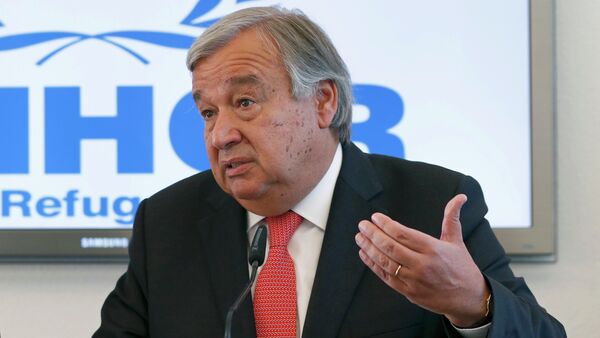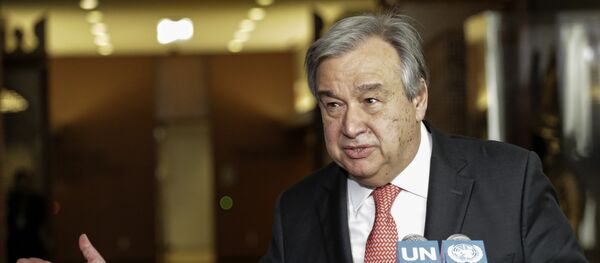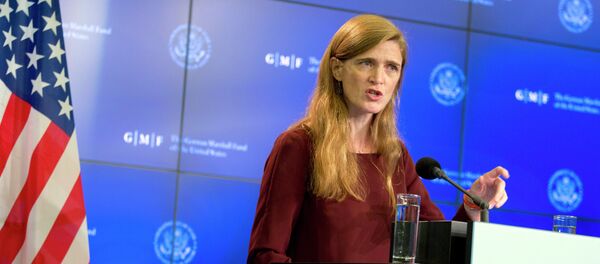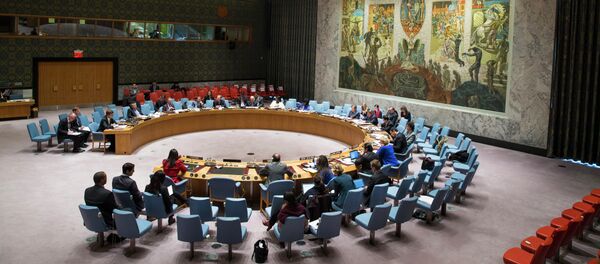Guterres served as the UN's High Commissioner for Refugees from 2005 to the end of 2015. He is set to succeed incumbent UN Secretary-General Ban Ki-moon when the South Korean steps down on December 31 this year.
Portugal's former UN ambassador Francisco Seixas da Costa told Sputnik that the unanimous recommendation of the Portuguese is an important demonstration of unity by the Security Council.
"I hope that as the new UN Secretary-General, Antonio Guterres can find a way out of this crisis situation. In particular, because he himself is proof that it is possible to find consensus between Russia and the Western world. After all, he was elected thanks to the votes of Russia, the West and also China," Costa said.
Guterres is a unity candidate, but reform to the UN Security Council requires consensus from its permanent and non-permanent members, Costa said.
"With regard to the reform of the UN Security Council, in my opinion today there aren't the necessary conditions to carry it out. Countries can't reach a consensus. The world has evolved since the Second World War but that isn't reflected in the UN because countries can't reach a consensus."
"The biggest news is that the nomination process was new this year. The personal characteristics of the candidates were taken into account. There were interviews and discussions, where never happened before. The choice of Guterres was not made on the basis of political expediency, but was largely determined by his personal qualities, which were discussed by all the members of the Security Council," Fonseca explained.
While the appointment of Guterres demonstrates the ability of the Security Council to reach an agreement, reforming of the institution will require a lot of negotiation between the Security Council members and the UN General Assembly.
The Security Council is composed of five permanent members (China, France, Russian Federation, the United Kingdom and the United States) and ten non-permanent members, which are elected for two-year terms by the General Assembly.
In 1965 the number of rotating non-permanent member was increased from six to ten, to be distributed on a regional basis. There are calls for the Security Council to be reformed and expanded to further reflect the geopolitical changes that have taken place since 1945, which include an increase in UN membership, from 51 countries in 1945 to 193 today.
In 1993 the UN General Assembly passed a resolution to "consider all aspects" of the issue of increasing the membership of the Security Council, and negotiations have taken place since 2009.
"There is a general consensus, also among the permanent members, on the need to reform the Security Council. The question is how to do it. It is necessary to redistribute authority, which is difficult in the present day," Fonseca said.
In 2004 Brazil, Germany, India and Japan established the Group of Four, which advocates the expansion of the categories of permanent and non-permanent members. The four countries want to become permanent members of an expanded UN Security Council, and advocate including a greater number of developing countries as both permanent and non-permanent members.
"The UN Secretary-General has the power to influence this process, but he doesn't have the power to take a decision. If the Secretary-General looks favorably on our efforts then that, of course, makes the process easier. But we are not the only participants; the issue is not just about whether Brazil will join but about reform as a whole. It is necessary to include another two African nations, another European, and so on," Fonseca said.




